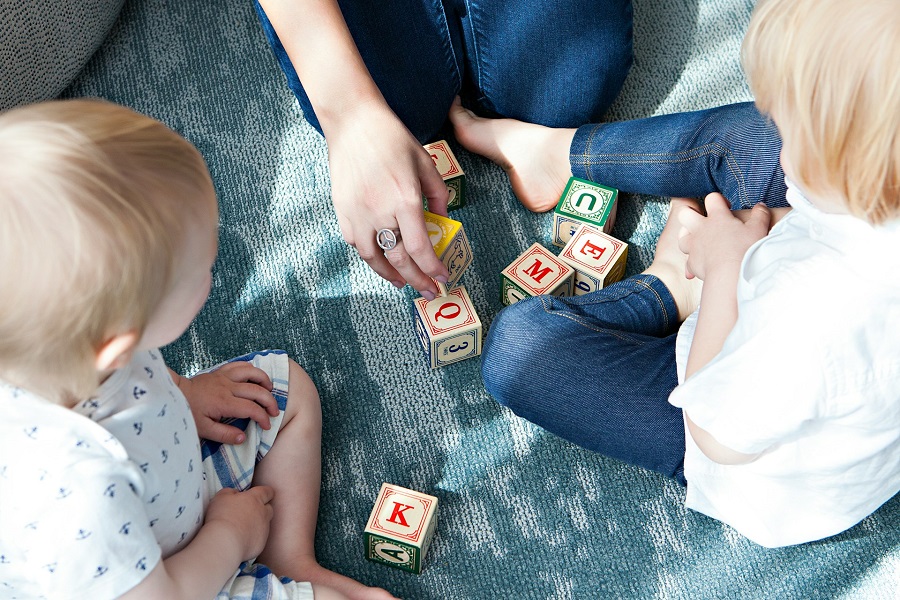What happens if a child protection plan is breached?

Has your world been turned upside down by child protection concerns? The moment social services mention a child protection plan, panic often sets in. Whether you’re a parent facing allegations, a family member caught in the crossfire, or simply seeking to understand the system, the consequences of breaches can be life-changing. When what happens if a child protection plan is breached becomes your reality, the path forward isn’t always clear. The clock starts ticking, and decisions made now could impact your family for years to come. Don’t navigate this complex legal landscape alone; professional legal guidance isn’t just helpful, it’s essential for protecting your rights and your child’s future.

Key Takeaway: Will breaching a child protection plan lead to losing my child?
Learn exactly what happens when child protection plans are breached and how to protect your parental rights.
Child protection plans explained
When professionals raise concerns about a child’s safety, many parents first ask “what is a child protection plan?” At its core, it’s a formal agreement, not a court order, that outlines specific concerns, required changes, and support offerings. Created during a multi-agency conference, these plans represent a critical crossroads where families have the opportunity to address issues before court intervention becomes necessary.
Your plan operates under the framework of the Child Protection Act and brings together professionals who will regularly visit your home, monitor progress, and hold review meetings. While voluntary in theory, non-compliance carries significant consequences that can escalate rapidly.
How child protection plans are breached
When what happens if a child protection plan is breached becomes your reality, understanding exactly what constitutes non-compliance is crucial. Authorities track every aspect of your engagement, and even unintentional missteps can trigger significant consequences under child protection legislation.
Common ways child protection plans are breached
Parents typically breach their plans through:
- Leaving children with unauthorised caregivers.
- Missing children’s medical or educational appointments.
- Failing to comply with supervised contact arrangements.
- Testing positive for substances when sobriety is required.
- Not demonstrating changed behaviour in areas of concern.
- Failing to attend required parenting classes or therapy sessions.
- Denying home access during announced or unannounced visits.
- Continuing relationships with individuals deemed risky to the child.
- Not addressing specified safety concerns in the home environment.
- Missing scheduled meetings with social workers or health professionals.
Authorities differentiate between isolated incidents and serious or persistent non-compliance. A one-time missed appointment due to documented illness differs substantially from repeatedly avoiding drug testing or concealing new relationships from your social worker. The most concerning breaches involve direct risks to children, such as leaving them unsupervised when specifically prohibited or exposing them to individuals named in a child protection order against father or other family members.
Initial responses to child protection plan breaches
When what happens if a child protection plan is breached moves from theoretical to reality, child protection services follow a structured response protocol. This isn’t simply about punishing non-compliance; it’s about reassessing risk and determining whether the current plan remains sufficient to protect the child.
Documentation and assessment process: Every breach becomes part of your permanent record with social services. Case workers document the specific requirements you failed to meet, surrounding circumstances, your explanation, whether it represents a pattern, any immediate safety concerns, and the impact on your child’s welfare.
Early intervention measures: Initial responses typically begin with a direct conversation and additional home visit to assess current conditions. Your social worker may request urgent meetings, offer practical assistance with barriers to compliance, clarify expectations, increase monitoring visits, or suggest additional support services.
Agency communication protocols: When breaches occur, information rapidly circulates among all agencies involved in your child protection case. Your social worker alerts the conference chair, informs other professionals working with your family, consults legal services if necessary, documents all communications, and may schedule an early review conference.
When child protection plan breaches trigger legal escalation
When initial responses to breaches prove insufficient, local authorities follow a carefully structured escalation path:
Review conferences and reassessment: If breaches continue, an early review conference brings together all professionals involved in your case. During this formal meeting, your compliance will be thoroughly assessed, the effectiveness of current interventions evaluated, and the child protection plan potentially modified with stricter requirements. The conference may increase monitoring frequency, add new conditions, or decide the current approach is no longer adequate to safeguard your child’s welfare.
Pre-proceedings process: When concerns escalate further, social services initiate formal pre-proceedings, a crucial stage before court action. You’ll receive a “Letter Before Proceedings” outlining specific concerns, changes required, and a clear timeframe for improvement. This triggers your entitlement to legal aid for representation at a meeting where authorities explain what must change to avoid court. This represents your final opportunity to demonstrate meaningful engagement before legal proceedings commence.
Legal planning meetings: Behind the scenes, social services hold legal planning meetings to determine whether the threshold for court intervention has been met. These internal meetings assess whether your breaches constitute sufficient evidence that your child is suffering or likely to suffer significant harm without court intervention. If legal teams conclude this threshold is met, the local authority begins preparing court applications for orders that could include a child protection order against father or other family members, or potentially more severe interventions.
Legal consequences when child protection plan breaches turn serious
When persistent breaches exhaust non-court interventions, local authorities move to formal legal action. This watershed moment transforms your case from voluntary cooperation to court-mandated interventions.
Child protection orders: Courts can grant immediate protective measures through emergency orders when authorities demonstrate significant risk. Understanding what is a child protection order becomes crucial; these legal instruments permit removal of children from home, restrict parental contact, or prevent children from being moved from safe locations. Different types exist, including Emergency Protection Orders lasting up to eight days and Interim Care Orders for longer-term arrangements while full proceedings progress.
Care proceedings process: Care proceedings represent the most serious intervention under the Child Protection Act. This formal court process begins with local authorities filing a C110A application alleging your child is suffering significant harm. Courts appoint a Children’s Guardian to represent your child’s interests, independent of both parents and local authority. These proceedings follow strict timeframes, aiming for completion within 26 weeks, though complex cases may take longer.
Each outcome fundamentally alters your parental rights, with the most severe child protection orders resulting in permanent removal of your child from your care.
Do I need a solicitor when facing child protection breaches?
When facing allegations of breaching a child protection plan, many parents delay seeking help until it’s too late, not realising that early legal intervention often achieves the best outcomes.
When legal representation is necessary: Legal representation becomes essential at several critical junctures. If you’ve received formal warnings about breaches, been invited to a pre-proceedings meeting, or received a Letter Before Proceedings, these are unmistakable signals to seek immediate legal help. Even earlier in the process, consulting a solicitor after repeated concerns about compliance can provide crucial guidance before problems escalate.
How solicitors can help: An experienced family law solicitor provides far more than courtroom advocacy. They’ll decode complex legal documents, explain the significance of recorded breaches, attend meetings with you to ensure fair treatment, challenge inaccurate allegations, negotiate workable solutions with authorities, identify supportive evidence for your case, and prepare comprehensive statements. Most importantly, they’ll provide objective assessment of your situation rather than false reassurance, helping you make informed decisions during an emotionally charged process.
FAQs
- Can I challenge a finding that I’ve breached my child protection plan? You can challenge breaches by providing evidence of reasonable explanations, requesting a formal review, or raising concerns through your solicitor.
- What happens if I breach the plan because I disagree with its requirements? Disagreeing with requirements but failing to comply is still considered a breach. The proper approach is challenging specific requirements through proper channels while continuing to engage with the process.
- How long will breaches remain on my record if I return to full compliance? Breach records remain permanently in social services files and can be considered in any future child protection However, demonstrating sustained compliance typically reduces their significance over time.
Breaching a child protection plan carries serious consequences that can escalate rapidly from additional monitoring to permanent removal of your child. Understanding your obligations, communicating proactively about challenges, documenting your compliance, and seeking early legal advice are your best defences against the most severe interventions under child protection legislation.
Take action before it’s too late!
Qredible’s’ network of specialised solicitors provides guidance to protect your parental rights and navigate this complex legal terrain.
KEY TAKEAWAYS
- A child protection plan is a formal document outlining required actions when authorities believe a child faces significant risk of harm.
- Breaches can range from missed appointments to continued unsafe behaviour, with each violation documented and potentially building toward court action.
- Initial responses to breaches typically involve increased monitoring and support before escalating to formal pre-proceedings and legal action.
- Court intervention may result in various orders including care orders, supervision orders, or in severe cases, placement for adoption.
- Early legal representation is crucial when facing allegations of breaches, with legal aid available to ensure parents have proper guidance throughout the process.
Articles Sources
- contend.legal - https://contend.legal/family/consequences-of-breaching-a-child-protection-plan-in-the-uk/
- ridleyandhall.co.uk - https://ridleyandhall.co.uk/what-are-the-stages-of-social-services-intervention/
- justanswer.co.uk - https://www.justanswer.co.uk/law/fofo3-refuse-child-protection-plan-happen-no.html
Do you need a solicitor?
Find a solicitor on Qredible in just a few easy steps












